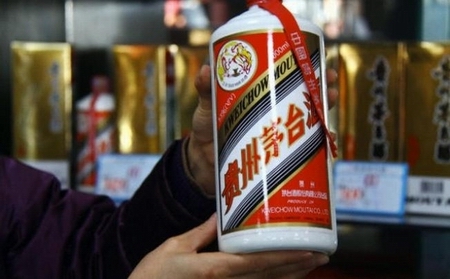
Kweichow Moutai Co Ltd - China's top liquor producer - has seen nearly flat growth in revenue in the first half of the year, hit by the government's campaign to crack down on lavish spending using public funds.
The company said its revenue for the first six months of 2013 was 17.9 billion yuan ($2.9 billion), up 0.6 percent year-on-year, or 100 million yuan.
The government's campaign has hit high-end liquor companies the most, industry insiders said.
In the first four months of the year, liquor production volume was 3.81 million kiloliters, an increase of 6.9 percent year-on-year but down 10.36 percentage points compared with the same period last year.
To boost sales, Moutai has slashed prices to attract more customers in the mid-range market. In mid-July, the company said it planned to reduce the prices of some products by up to 50 percent.
But industry experts are not optimistic about the company's expansion plans in the mid-range market, where its distribution channels are not established well enough to compete with local brands.
For years, Moutai has relied heavily on high-end group consumption and specialized stores to develop sales.
To change its distribution channels, which used to target luxury spending, to aim at ordinary customers will take considerable time and effort, said Ma Fei, an industry consultant.
Meanwhile, Moutai's peers are also posting lackluster results. Jiugui Liquor Co Ltd said its first-half revenue has seen a rapid decline, resulting in a nearly 90 percent drop in profits.
Sichuan Tuopaishede Group said because of the government's austerity campaign and the restrictions on the sale of alcoholic drinks within the military, sales of its high-end products have fallen significantly, as has its net profit, which is expected to be down about 80 percent for the first half of the year.
Another top liquor brand, Wuliangye Group, launched mid-range products priced between 200 and 500 yuan this month. The group is seeking a flattened distribution channel for all its products to reboot its profits, said Wang Chuancai, an industry consultant.
Tang Qiao, chairman of Wuliangye Group, said it is changing its product structure that used to emphasize the sales of its high-end product lines, bringing in 70 percent of revenues.
He said the sales target for this year has been lowered to about 30 billion yuan, only slightly higher than last year's 27.6 billion yuan.
Tang said the days of demand exceeding supply are over. This year the inventory situation has forced them to change their strategy for development.
Xie Ji, an analyst at the New Food Industry Institute, said with the decline in spending on luxury drinks and growth in public consumption of liquor, the two sides will eventually overlap in the product range priced between 100 and 300 yuan. The liquor products of this price range will make up half of the industry total sales in the future, he said.
An increasing number of distributors who used to represent mid-range liquor brands have now shown strong interests in Wuliangye's new products, Xie said.
But he added the evolution is far from over. After the tumult of contraction, stability in the market is only the first step. Dealing with overcapacity will be a major challenge, he added. For example, he said, there are about 2,000 liquor manufacturers nationwide. A number of small liquor producers are very likely to disappear.





